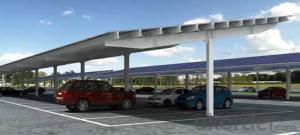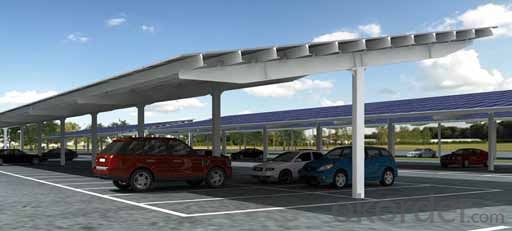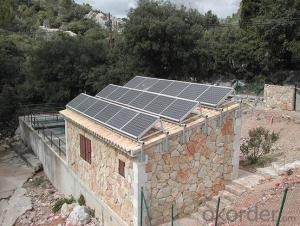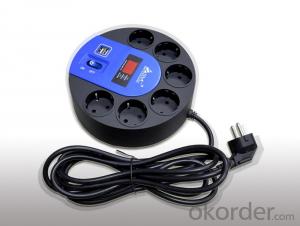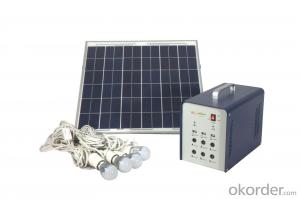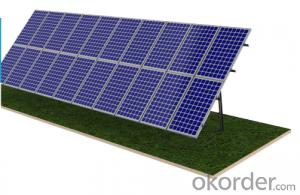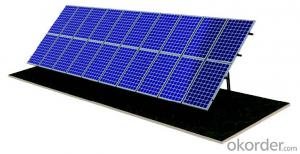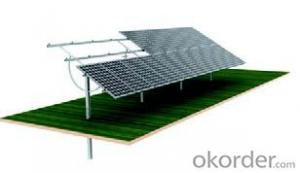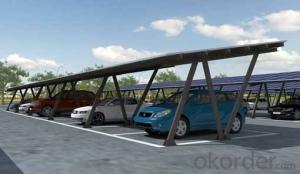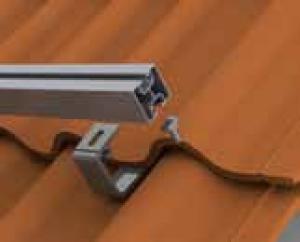Solar Energy Systems Orange - Solar Carport System Single Pile
- Loading Port:
- China Main Port
- Payment Terms:
- TT OR LC
- Min Order Qty:
- -
- Supply Capability:
- -
OKorder Service Pledge
Quality Product, Order Online Tracking, Timely Delivery
OKorder Financial Service
Credit Rating, Credit Services, Credit Purchasing
You Might Also Like
Product Features
• No location limitation
• Simple structure, easy & quick installation
• Use standard components, low maintenance cost
• Easy to be packaged, minimized transportation cost
• Removable & reusable
• With waterproof & non-water proof solutions for choice
• Customization available
- Q: Can solar energy systems be used in areas with high levels of air pollution from wildfires?
- Yes, solar energy systems can still be used in areas with high levels of air pollution from wildfires. While the efficiency of solar panels may be slightly reduced due to reduced sunlight penetration through the smoky air, they can still generate electricity. Additionally, solar energy systems can help reduce dependence on traditional power sources that may contribute to air pollution, making them a cleaner alternative overall.
- Q: How do solar energy systems impact social equity?
- Solar energy systems can have a positive impact on social equity by providing access to clean and affordable energy for all. By reducing reliance on fossil fuels, solar energy helps to mitigate climate change, which disproportionately affects marginalized communities. Additionally, solar power can create job opportunities and stimulate local economies, promoting social and economic development.
- Q: What is the role of voltage regulators in a solar energy system?
- The function of voltage regulators within a solar energy system is to guarantee that the voltage output of the solar panels remains regulated and maintained within a specific range. Solar panels produce direct current (DC) electricity, which must be converted to alternating current (AC) in order to be utilized in homes and businesses. Nevertheless, the voltage output of solar panels can fluctuate due to varying factors such as sunlight intensity, temperature, and system load. Voltage regulators, also referred to as charge controllers, are responsible for stabilizing the voltage output of the solar panels. They constantly monitor the voltage level and make necessary adjustments to prevent overcharging or undercharging of the batteries or electrical loads connected to the system. By maintaining a consistent voltage, voltage regulators safeguard the batteries from potential damage caused by overcharging, which can reduce their lifespan. They also prevent undercharging, ensuring that the batteries are charged to their optimal capacity, thereby maximizing their efficiency and performance. Furthermore, voltage regulators play a critical role in safeguarding electrical devices connected to the solar energy system. They avert voltage spikes or surges that could potentially harm sensitive equipment like inverters or appliances. To summarize, voltage regulators are indispensable components in a solar energy system as they regulate and stabilize the voltage output of the solar panels, providing protection for batteries and electrical devices against potential damage.
- Q: Can solar energy systems be used in disaster-prone areas?
- Yes, solar energy systems can be used in disaster-prone areas. In fact, they can prove to be extremely beneficial in these areas. Solar energy systems are resilient and can continue to function even during power outages caused by natural disasters. They provide a reliable and sustainable source of electricity, which can be crucial for emergency response efforts, powering communication systems, medical equipment, and providing lighting and heating. Additionally, solar energy systems can help reduce dependence on fossil fuels, contributing to a more sustainable and environmentally-friendly recovery and rebuilding process.
- Q: How do solar energy systems impact the electricity grid?
- Solar energy systems impact the electricity grid by reducing the demand for electricity from traditional power plants and lowering overall electricity costs. They also contribute to a more resilient and decentralized grid by generating electricity closer to where it is consumed, reducing transmission losses and enhancing grid stability. However, the intermittent nature of solar power can pose challenges for grid operators in terms of managing fluctuations in supply and demand.
- Q: Can a solar energy system be installed on a parking garage or structure?
- Certainly, it is entirely possible to install a solar energy system on a parking garage or structure. As a matter of fact, these locations are often considered ideal for solar installations due to their expansive surface areas and access to sunlight. The utilization of available space can be maximized by mounting solar panels on the roof or external walls of parking structures. Furthermore, the raised position of parking garages enables better exposure to sunlight, resulting in more efficient generation of solar energy. Furthermore, the installation of a solar energy system on a parking garage or structure can yield numerous advantages, including the generation of clean and renewable energy, reduction in electricity costs, and offsetting of carbon emissions. This choice therefore proves to be a sustainable and environmentally friendly option for energy production.
- Q: Can solar energy systems be used in powering green hotels or eco-resorts?
- Yes, solar energy systems can definitely be used in powering green hotels or eco-resorts. Solar power is a clean and renewable source of energy that can greatly contribute to reducing the carbon footprint of these establishments. By installing solar panels on the roofs or open spaces of hotels and resorts, they can generate electricity from the sun's rays and use it to power their operations. Solar energy systems can provide a significant portion, if not all, of the electricity needed to run a green hotel or eco-resort. This includes powering lighting systems, heating and cooling systems, water pumps, and other electrical appliances. The excess energy generated during the day can also be stored in batteries or fed back into the grid to be used during nighttime or low sunlight periods. Implementing solar power in these establishments not only helps reduce their dependence on fossil fuels but also makes them more self-sufficient and resilient to power outages. It aligns with their commitment to sustainability and eco-conscious practices, attracting environmentally conscious travelers who prioritize staying in green accommodations. Furthermore, solar energy systems can also enhance the overall guest experience at these hotels and resorts. They can provide opportunities for educational tours and demonstrations where guests can learn about the benefits of solar power and the importance of renewable energy sources. This can create awareness and inspire guests to adopt sustainable practices in their own lives. In conclusion, solar energy systems are an excellent choice for powering green hotels or eco-resorts. They offer a clean, renewable, and reliable source of electricity that aligns with their sustainability goals. By harnessing the power of the sun, these establishments can reduce their carbon footprint, enhance their guest experience, and contribute to a more sustainable future.
- Q: Can a solar energy system be installed on a government building or facility?
- Yes, a solar energy system can be installed on a government building or facility. In fact, many governments around the world have been actively promoting and implementing renewable energy initiatives, including solar power, on their buildings and facilities. Installing solar panels on government buildings not only helps to reduce carbon emissions and reliance on fossil fuels but also sets an example for the community and encourages the adoption of clean energy technologies. Additionally, solar energy systems can help governments save money on electricity bills in the long run and provide a more sustainable and resilient energy source. Overall, the installation of solar energy systems on government buildings is a viable and increasingly popular option for promoting clean energy and combating climate change.
- Q: Can solar energy systems be used in areas with limited access to replacement parts?
- Yes, solar energy systems can be used in areas with limited access to replacement parts. Solar panels have a long lifespan and require minimal maintenance. Additionally, solar systems are modular in design, allowing for easy replacement of individual components if necessary. With proper planning and maintenance, solar energy systems can provide a reliable and sustainable source of power even in remote areas with limited access to replacement parts.
- Q: Can a solar energy system be used in conjunction with other renewable energy sources?
- Certainly, a solar energy system can be utilized alongside other renewable energy sources. In fact, the amalgamation of various renewable energy sources is often referred to as a hybrid renewable energy system, which can yield numerous benefits. By integrating solar energy with sources like wind, hydro, or geothermal energy, a hybrid system can provide a more consistent and dependable power supply. This is due to the different energy generation patterns of each source, and combining them can compensate for any fluctuations or limitations in a specific source. For instance, solar energy production peaks during the day, while wind energy remains relatively constant throughout the day and night. The integration of these two sources ensures a continuous power supply. Moreover, the utilization of multiple renewable energy sources can maximize overall energy production and efficiency. Each source possesses its own strengths and weaknesses, and combining them can amplify the total energy output. This is particularly advantageous in scenarios with high energy demand or when one source alone may not suffice to meet energy needs. Furthermore, a hybrid renewable energy system can enhance energy independence and resilience. By diversifying the energy sources, the system becomes less reliant on a single source, reducing vulnerability to disruptions or failures. This is especially crucial in remote or off-grid areas where access to a reliable power supply is essential. In conclusion, a solar energy system can effectively be used together with other renewable energy sources to create a hybrid system. This approach offers various advantages, including enhanced reliability, improved efficiency, and increased energy independence. By combining multiple renewable energy sources, we can capitalize on their unique strengths and establish a more sustainable and resilient energy system.
Send your message to us
Solar Energy Systems Orange - Solar Carport System Single Pile
- Loading Port:
- China Main Port
- Payment Terms:
- TT OR LC
- Min Order Qty:
- -
- Supply Capability:
- -
OKorder Service Pledge
Quality Product, Order Online Tracking, Timely Delivery
OKorder Financial Service
Credit Rating, Credit Services, Credit Purchasing
Similar products
Hot products
Hot Searches
Related keywords
